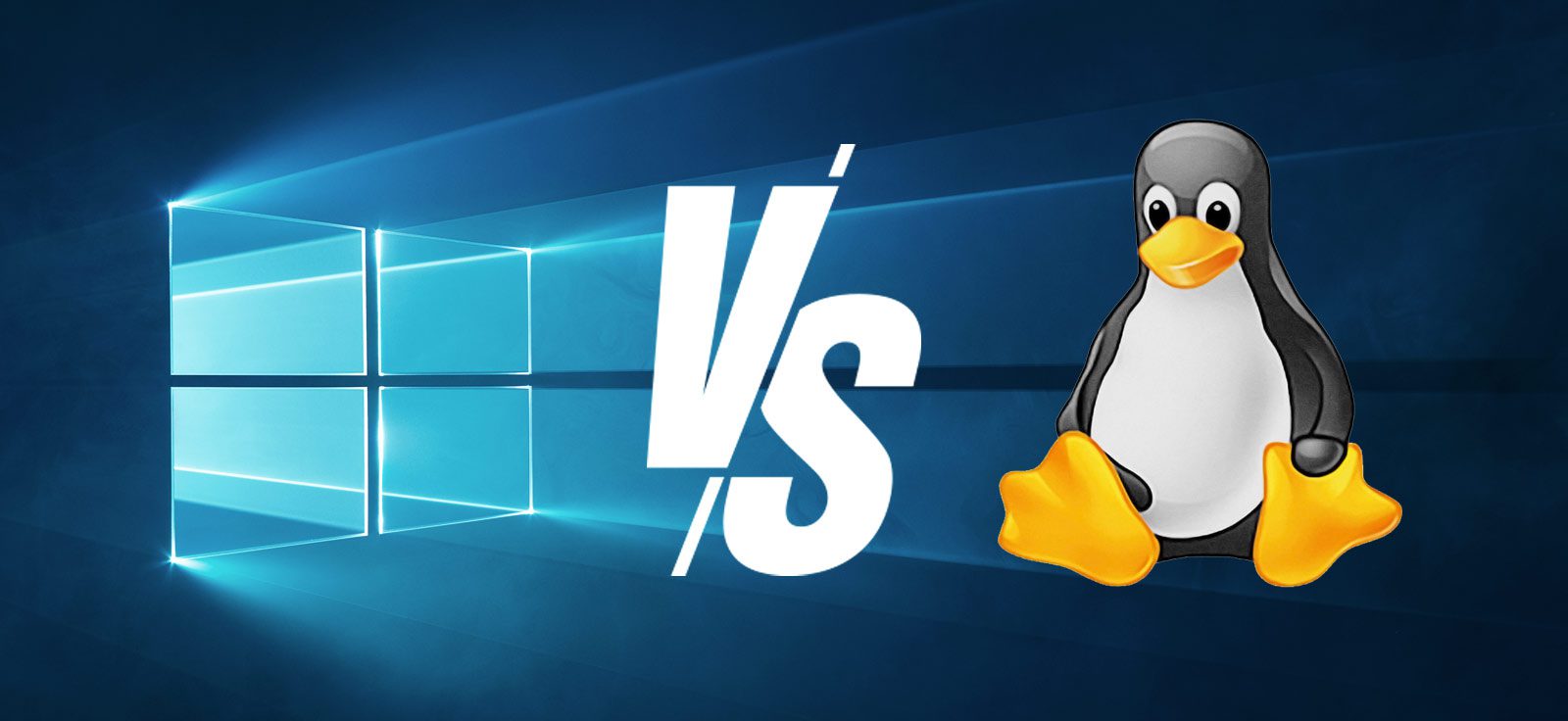The battle-scarred “Linux or Windows” debate has been ongoing for ages. Developers have to decide between the two web hosting services whenever they choose the operating system for a server. At the same time, many individuals oscillate between the same choices when setting up a new PC at home. However, servers and server operating systems are more complex than desktop operating systems and require a different approach.
Both options can be efficient, depending on the company’s size, the software it wants to run, and the range and support it needs. The decision can be crucial, especially in the case of organizations that are operating on bare metal. Understanding the benefits and shortcomings of both options helps to determine which option would be the most suitable for a business’s specific set of requirements.
This blog is going to dig into the age-old operating system debate to help you decide whether Linux or Windows servers are best for your work plans. Let’s get started.
Linux Servers Summed
Before we get down to the Linux or Windows pros and cons, let’s recap the main features of Linux.
Linux servers are popular for many reasons: they are open-source, have exceptional community support, and are low-cost, among many other advantages.
First of all, Linux is considered very stable. This is due to the fact that its distribution software, like Ubuntu, Linux Mint, and Debian, is built around the Linux kernel. Because the Linux kernel is monolithic and modular, it offers high stability, security, and flexibility. It is widely used for web hosting, managing networks, and running applications.
While graphical user distributions are also available, Linux is basically operated through a command-line interface. This offers unparalleled flexibility and the possibility to modify configurations without system reboots. Linux’s flexibility allows for boundless possibilities for customization, making it easy to adapt to practically any situation or domain.
Because they offer remote administration and backed accessibility, Linux servers provide great flexibility for system administrators as well, allowing them unconditioned access for optimization.
Advantages of Linux Servers
- Linux has a key advantage in the Linux or Windows comparison: it’s open-source, making it very affordable.
- Linux servers are considered more reliable. Large companies like IBM regularly contribute to supporting them, which helps maintain high quality and security. Additionally, because the community using Linux is smaller, Linux is rarely a subject to cyber attacks.
- Because Linux doesn’t have high infrastructure requirements, it can show really high performance.
- Linux is compatible with other open-source software, and it is even possible to deploy Windows applications; however, a virtual machine or additional software might be required.
- The code is accessible for creative development, providing a strong basis for the developer community. Linux doesn’t have official support, but there is a large and involved community of users willing to offer help with the issues you run into.
- Linux offers a high degree of system customizability, allowing users to tailor environments to their specific needs.
- It doesn’t depend on the client’s hardware and consumes less resources.
- Modifications to the system can be made without bringing the server offline, making it a very advantageous operating system for companies relying heavily on online servers.
Disadvantages of Linux Servers
- Linux has no licensing fee (except for Red Hat and SUSE), but there’s no official support either unless you opt for a paid version. However, setting up and maintaining Linux servers requires a degree of technical expertise.
- Linux operates with a command line interface, which requires a bit of getting used to for those more familiar with a graphic user interface.
- Switching from one version to another can be an elaborate procedure requiring know-how.
- It is not suitable for working with some third-party programs like Adobe.

Microsoft Servers Summed
Now, let’s look at Microsoft servers to see what the Linux or Windows debate is about.
Windows servers are another server operating system option, built to provide organizations with a safe and reliable platform for various services. Windows server operating systems are built with comprehensive administrative control for applications, data storage, and corporate networks.
The key feature of the Windows NT kernel is symmetric multiprocessing, which makes it easier and faster to run applications on machines with multiple processors.
Windows servers can be deployed on hardware in the data center or from a cloud platform like Microsoft Azure.
Later versions include Active Directory, a service that automates the management of security, user data and resource distribution while also facilitating interoperability with other directories. Later versions include Server Manager as well, a tool that expedites server role administration and assists configuration changes to connected machines.
Windows servers are easily customizable, and their features are suitable for managing large workloads while safeguarding data accessibility at all times. Windows servers can be configured to fit many specific company requirements.
Advantages of Microsoft Servers
- Windows servers are considered the beginner-friendly option when choosing between Linux or Windows, thanks to their immediate functionality and easy-to-use, intuitive graphical user interface.
- Automated updates, requiring less monitoring and maintenance
- Windows server operating systems have to be purchased, however, they come with five years of maintenance (plus 10 years with extended support)
- Thanks to its advanced authentication and authorization options, windows servers are highly secure. Admins can leverage the built-in monitoring tools to spot irregular activity and increase overall security.
- Windows server operating systems support a wide range of third-party applications, offering customizability and flexibility
Disadvantages of Microsoft Servers
- Windows is not open source, so there is a licensing fee to be paid, making it more costly than Linux
- It is more exposed to malware, cyber threats, and security errors.
- The graphical user interface makes it more resource-intensive, relying on the client hardware as well.

Linux or Windows – The Final Comparison
Let’s gather all the Linux or Windows arguments.
Linux is an open-source operating system that is very highly successful with servers. In fact, it’s okay to say that Linux is the most popular choice of OS when it comes to servers. By looking at the freshest 2024 Linux statistics, we find that 96.3% of the top 1,000,000 web servers use Linux.
Linux is also the OS of all supercomputers. There are no Windows supercomputers.
It may be a lesser-known fact in the world, but Raspberry Pi, Android systems, and Chrome OS are also built on the Linux kernel.
On the other hand, Linux didn’t have as much success on the desktop. This is partly due to fragmentation issues because of the many different versions and distributions. Linux hasn’t been as successful with drivers either, while in the case of Windows, there’s one for every piece of hardware.
Gaming is another field in which Windows has been more successful. Game releases focus on consoles, and a small part of them are for Macs, but there’s no significant presence for Linux (for now).
Linux doesn’t support Adobe Creative Suite. Although the problem can be fixed by using a virtual machine, it’s less likely to be chosen by graphic designers and creatives working with Photoshop and other video or music editing programs.
Windows, even though it has a licensing fee, has been very successful for the desktop. This is mostly due to its highly intuitive and user-friendly graphical user interface. It is also the operating system for gaming.
However, as we can learn from the statistics, Windows servers are used much less than Linux servers. Windows hasn’t been as successful in the cloud either. While Azure offers support for SQL, .NET, and other Windows server workloads, it is massively dependent upon Linux.
Get Your Own Bare Metal Dedicated Servers at Volico Data Centers
While Windows is the best for desktops, it might not be the best choice in the world of servers. Of course, there are Windows servers, and the advantages they offer can be suitable for specific environments, but almost all web servers in the world are using Linux. It is important, however, to always consider the specific requirements before committing to a long-term choice.
At Volico Data Centers, our Linux dedicated servers give you complete control. Our bare metal dedicated servers boast the highest performance, control, and security. On top of that, Volico has a team of certified experts at your disposal 24/7 for support. Our managed dedicated server hosting solutions ensure the necessary maintenance and updates while you can focus your resources on more important tasks at hand.
Got questions? Want to talk specifics? That’s what we’re here for.
For more information, call (305) 735-8098 or chat with a member of our team to discuss which operating system best fits your organization’s specific needs.













